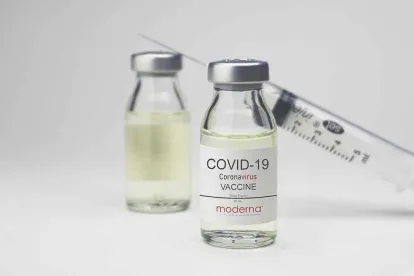More than a year into the COVID-19 pandemic, employers are happy to be more focused on vaccine issues than on issues relating to furloughs and layoffs.
As record numbers of vaccinations take place daily, many employers have been asking what they can or should do to encourage their employees to become vaccinated. Federal regulators have weighed in on questions regarding incentives, though the guidance has not always been as clear and definite as one might hope. As part of our ongoing Employee Benefits Symposium Webinar Series, we recently addressed the legal and practical issues raised by employer efforts to incentivize vaccinations. Below is a collection of answers to employers’ most frequently asked questions.
Question 1. Does the CARES Act apply only to “small” employers?
Answer 1. No. Although the Coronavirus Aid, Relief, and Economic Security (CARES) Act includes the Paycheck Protection Program (PPP), which generally applies to employers with fewer than 500 employees, there are many provisions within the CARES Act that apply to larger employers, such as those provisions requiring employer-sponsored health plans to cover the costs of COVID-19 vaccines and testing.
Q2. Does offering paid time off to employees to become vaccinated create an ERISA benefit or plan?
A2. In most cases, no. Although the Employee Retirement Income Security Act of 1974 (ERISA) applies to many employer-sponsored benefits, it does not apply to all of them. ERISA’s coverage does not generally extend to so-called “payroll practices,” such as employer-funded sick leave and vacation pay. As such, if an employer simply provides paid leave at its own expense to allow employees time off for vaccine administration and related tasks, that practice is unlikely to create an ERISA-covered plan or benefit. Note that the result might be different for time off provided through vacation and time-off programs that are funded through a trust or other external source.
Q3. What about reimbursing employees for any out-of-pocket costs associated with getting vaccinated?
A3. There should not be any medical out-of-pocket expenses associated with vaccine administration. As noted above, the CARES Act generally requires employer-sponsored health plans (insured and self-funded) to cover the costs associated with COVID-19 testing and vaccines. For insured plans, enrollees (employees and dependents) should not have any out-of-pocket costs (i.e., deductibles, coinsurance, and copayments) for the employer to reimburse since the insurer is required to waive such costs. For self-funded plans, these costs are also required to be waived. To the extent that health plan enrollees incur other expenses associated with COVID-19 vaccination and testing that are not waived, these expenses may be eligible for reimbursement as “qualified medical expenses” under health reimbursement arrangements, health flexible spending accounts, and/or health savings accounts.
Q4. Should we limit our vaccine incentive program to 2021?
A4. The answer to this question depends on two key variables. First, it is unclear whether public health authorities will recommend recurring vaccinations in future years. If so, employers may elect to continue their vaccine incentive programs beyond 2021 to facilitate access to booster vaccinations. The second variable relates to the structure of an employer’s vaccine incentive program. For a more formal program that has been incorporated into an existing health plan or wellness program, an employer may prefer to maintain the vaccine incentive beyond 2021 to avoid the need to adopt further plan amendments. However, for less formal vaccine incentive programs, these administrative considerations may be less significant. That said, employers may wish to maintain their own status quo in 2022 and beyond, pending further guidance from public health authorities and more clarity about the success of vaccines in altering the pandemic’s trajectory.
Q5. What should an employer that offers several hours of paid time off as an incentive do when an employee declines to be vaccinated for medical or religious reasons?
A5. Employers subject to the Americans with Disabilities Act (ADA) and Title VII of the Civil Rights Act of 1964 may not require their employees with disabilities or sincerely held religious beliefs, who refuse to be vaccinated based on these grounds, to participate in any mandatory vaccination program. As a result, employers may want to prepare to provide reasonable accommodation to these individuals rather than mandating vaccines for the entire workforce.
Q6. Could a vaccine incentive be included in an existing wellness program?
A6. Yes, but recent guidance has created a simpler alternative to the wellness program approach. Vaccine incentive programs were initially likened to wellness programs, but federal regulators have recently confirmed their view that vaccine incentives funded by employers can also be regarded as a type of employee assistance program (EAP) if certain conditions are satisfied. Vaccine incentives provided through an EAP often may be simpler to administer and subject to fewer restrictions than those offered under a more traditional wellness program.
Q7. Would a vaccine incentive offered through a wellness plan simply be a “participation-only” program to which few extra rules would apply?
A7. Probably not. Wellness programs that require employees to satisfy a standard relating to a health status factor are classified as “health-contingent” wellness programs and are subject to more restrictive limits than those that apply to “participation-only” programs. With regard to vaccine incentives, an employee’s inability to receive a vaccine due to allergies or other medical conditions, for example, would likely constitute a health status factor. Where the incentives on offer were not available to all employees, more extensive requirements for health-contingent programs would likely become applicable to limit the value of the incentives and require the employer to provide alternative ways for employees to qualify to receive them, among other things.
Q8. If a wellness program or an EAP is tied to a major medical plan, can a vaccine incentive offered under that program be offered to all employees or must it be limited to enrollees in the medical plan?
A8. Eligibility for wellness programs and EAPs—and vaccine incentives offered through them—will depend on the design of the programs. Note that the approach mentioned above regarding EAP-based vaccine incentives may help to avoid the complexities associated with tying eligibility for incentives to an existing wellness program that is integrated with a medical plan. A vaccine incentive program that is integrated into a wellness program or an EAP that is itself bundled with a medical plan could limit access to incentives generally to individuals who are enrolled in the medical plan. However, participation in a wellness program or an EAP need not be limited to medical plan enrollees only, and employers might find it beneficial to make vaccine incentives available more broadly.






 />i
/>i

